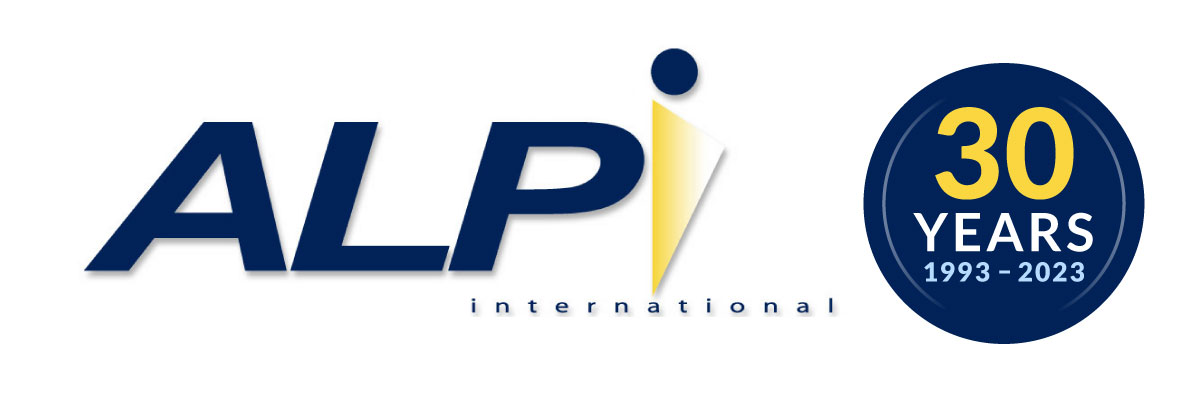Model-Based Testing—ISTQB Software Testing Certification Training
Course Description




Why choose ALPI for ISTQB Model-Based Testing certification training?
- ALPI's training is accredited by ASTQB, the U.S. Board for ISTQB certification, so you can be certain you are getting excellent training quality.
- We use certified live instructors in both our in-person and virtual classes so you can ask questions and get answers right away.
- We focus on real-world examples.
- We teach using interactive, hands-on exercises.
- This ALPI course is eligible for a free refresher guarantee so you can re-take the course within 4 months at no additional charge. Plus, if you meet the criteria, you could also re-take your exam for free. Contact us for information about this unique benefit that gives you peace of mind.
This specialist course is designed to teach participants the essentials of model-based test techniques and how to effectively develop models for software testing.
Model-based testing is an innovative test approach to improve effectivity and efficiency of the test process. A model-based tester on a project uses models to drive test analysis and design, and keeps advantage of the models for other testing activities such as test implementation and reporting. This course is ideal for testers experienced with the development of web-based, PC, and client-server applications, entry-level testers with an interest in model-based testing, and modelling software engineers. We suggest that attendees hold the ISTQB Foundation Level certificate, especially if they intend to take the ISTQB Model-Based Tester exam, but non-certificate holders can benefit from the course.
By the end of this course, an attendee should be able to:
- Collaborate in a model-based testing team using standard terminology and established MBT concepts, processes and techniques.
- Apply and integrate model-based testing in a test process.
- Effectively create and maintain MBT models using established techniques and best practices of model-based testing.
- Select, create and maintain test artifacts from MBT models considering risk and value of the features tested.
- Support the organization to improve its quality assurance process to be more constructive and efficient.
- For participants attending class remotely (Virtual Live), the exam can be scheduled online from home/office or by visiting a test center. Visit ISTQB Online Exam Information and Locate a Test Center for details.
- For participants attending class in Chevy Chase, MD, the exam will be administered on last day of class, ending by 5pm, so please plan your travel accordingly.
Duration
2 day(s)Time
9 - 5 ETPrice
$1,350Labs
Exercises reinforcing Learning Objectives help to understand and apply topics in the course.
Intended Audience
The target audience for this course includes:- Testers
- Developers
- Designers
- Model-based software engineers
Prerequisites
You must have obtained an ISTQB Foundation Level Certification (CTFL) to be eligible for the Model-Based Testing Certification.Prior to attending class please download and review the following document: Model-Based Testing Syllabus
Outline
Introduction to Model-Based Testing
- Objectives and Motivations for MBT
- Main Motivations for MBT
- Misleading Expectations and Pitfalls of MBT
- MBT Activities and Artifacts in the Fundamental Test Process
- MBT Specific Activities
- Essential MBT Artifacts (Inputs and Outputs)
- Integrating MBT into the Software Development Lifecycles
- MBT in Sequential and Iterative Software Development Lifecycles
- Supporting Requirements Engineering
MBT Modeling
- MBT Modeling
- MBT Modeling Activities
- Subject and Focus of MBT Models
- MBT Models Depend on Test Objectives
- Languages for MBT Models
- Main Categories of Modeling Languages for MBT
- Language Categories Relevant for Different Systems and Project Objectives
- Good Practices for MBT Modeling Activities
- Quality Characteristics for MBT Models
- Typical Mistakes and Pitfalls in MBT Model Design
- Linking Requirements and Process Related Information to the MBT Model
- Modeling Guidelines for MBT
- Reuse of Existing System Design or Requirements Models
- Tool Support for Modeling Activities
- Iterative Model Development, Review and Validation
Selection Criteria for Test Case Generation
- Classification of MBT Test Selection Criteria
- Test Selection Criteria
- Test Case Selection in Practice
- Examples of Test Selection Criteria
- Relation to Foundation Level Test Design Techniques
- Applying Test Selection Criteria
- Degree of Automation in Test Generation
- Pros and Cons of Specific Test Selection Criteria
- Good Practices of MBT Test Selection
MBT Test Implementation and Execution
- Specifics of MBT Test Implementation and Execution
- Abstract and Concrete Test Cases in the MBT Context
- Different Kinds of Test Execution
- The Impact of Changes on the MBT Artifacts
- Activities of Test Adaptation in MBT
Evaluating and Deploying an MBT Approach
- Evaluate an MBT Deployment
- ROI Factors for MBT Introduction
- Organizational Objectives and their Relationship to the Characteristics of the MBT Approach
- Metrics and Key Performance Indicators
- Manage and Monitor the Deployment of an MBT Approach
- Good Practices when Deploying MBT
- Cost Factors of MBT
- Integration of the MBT Tool
